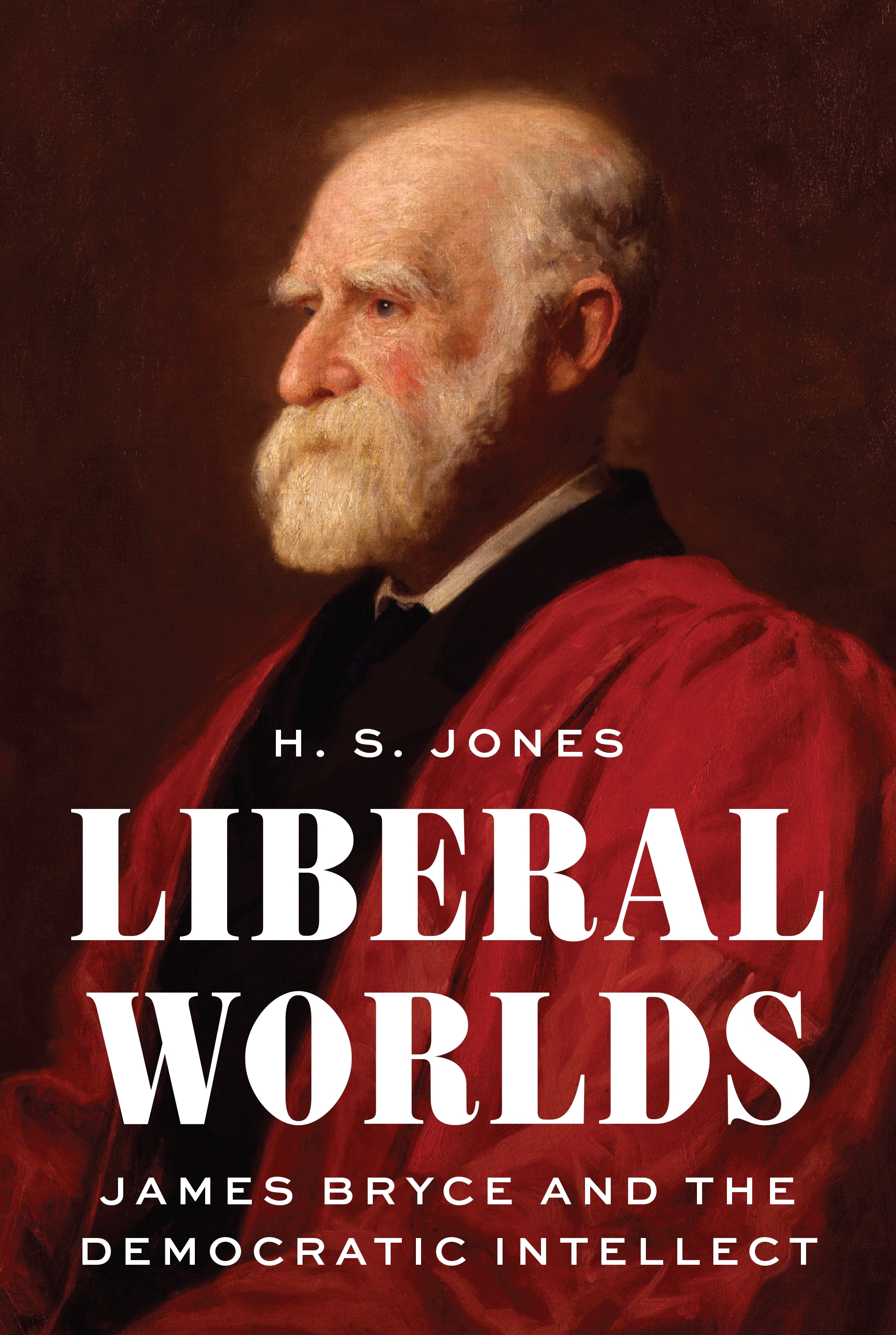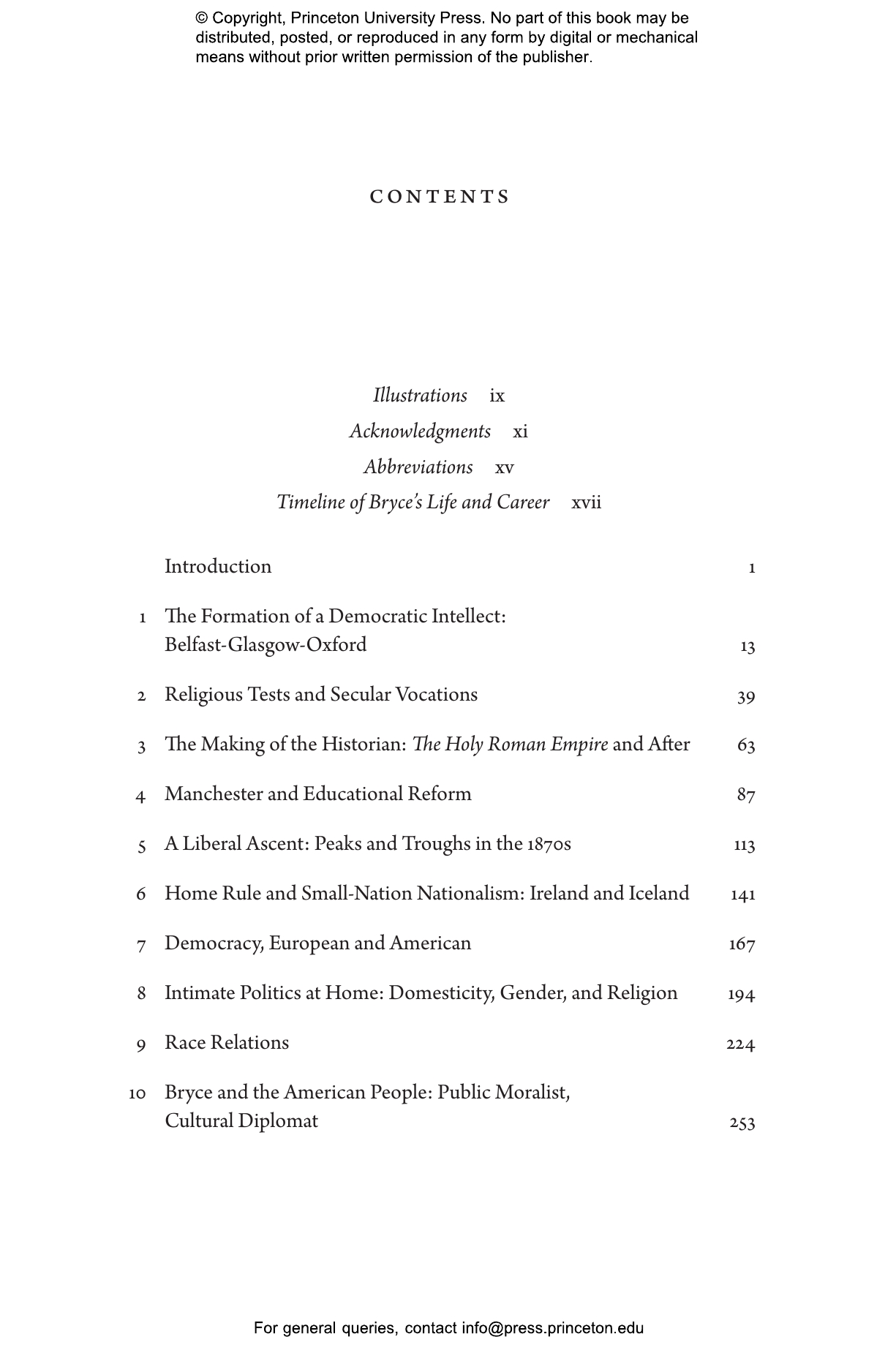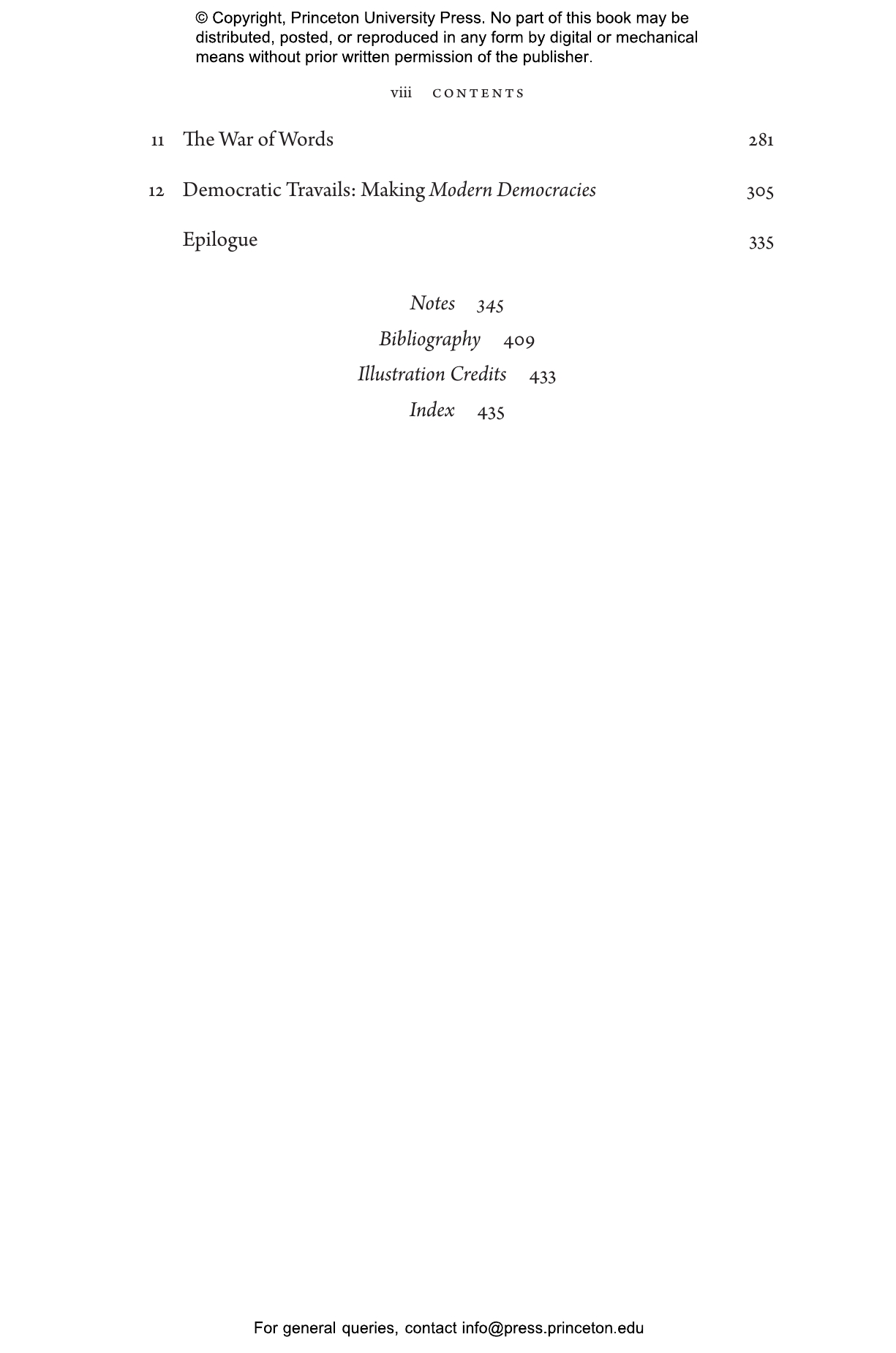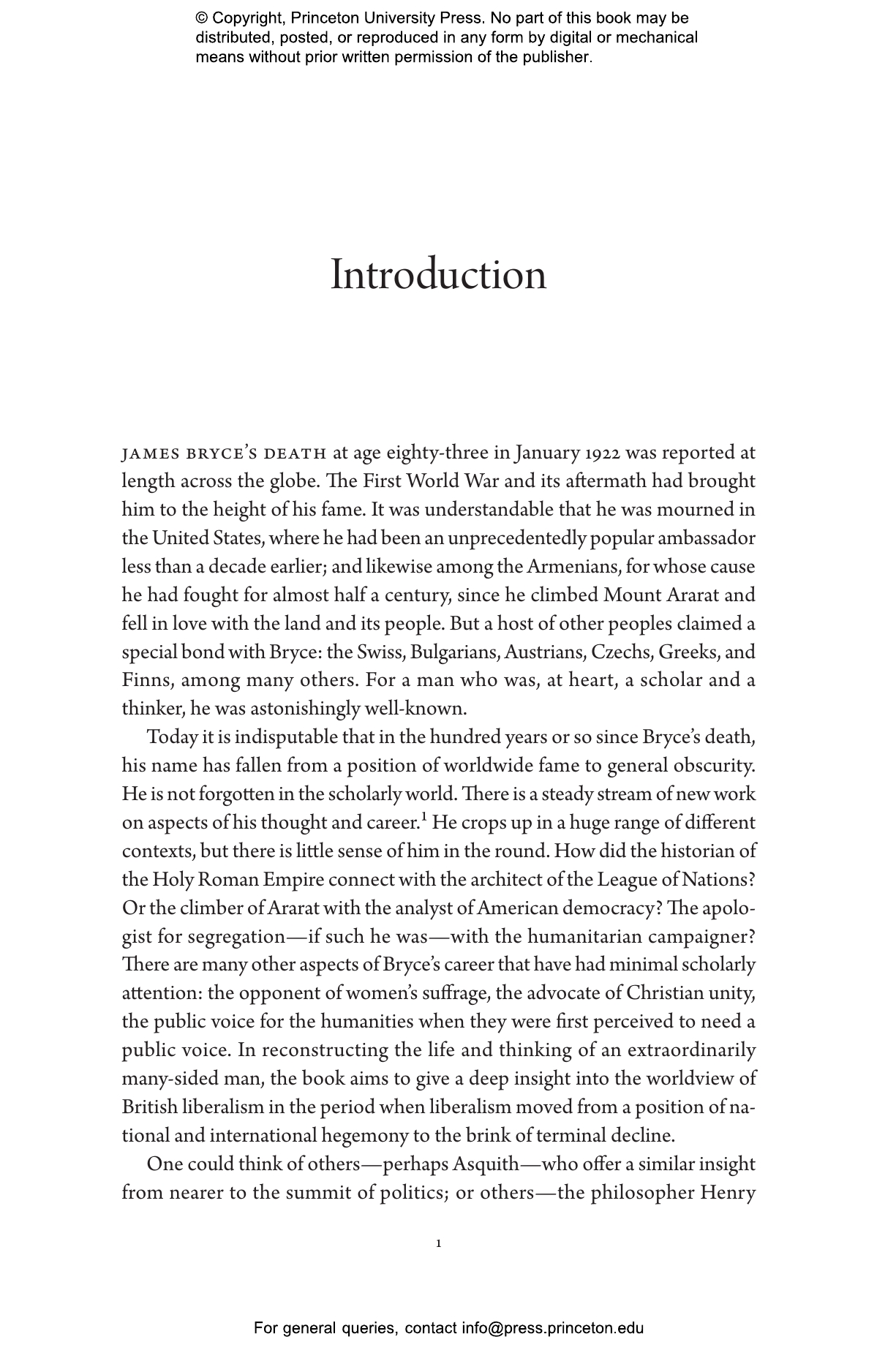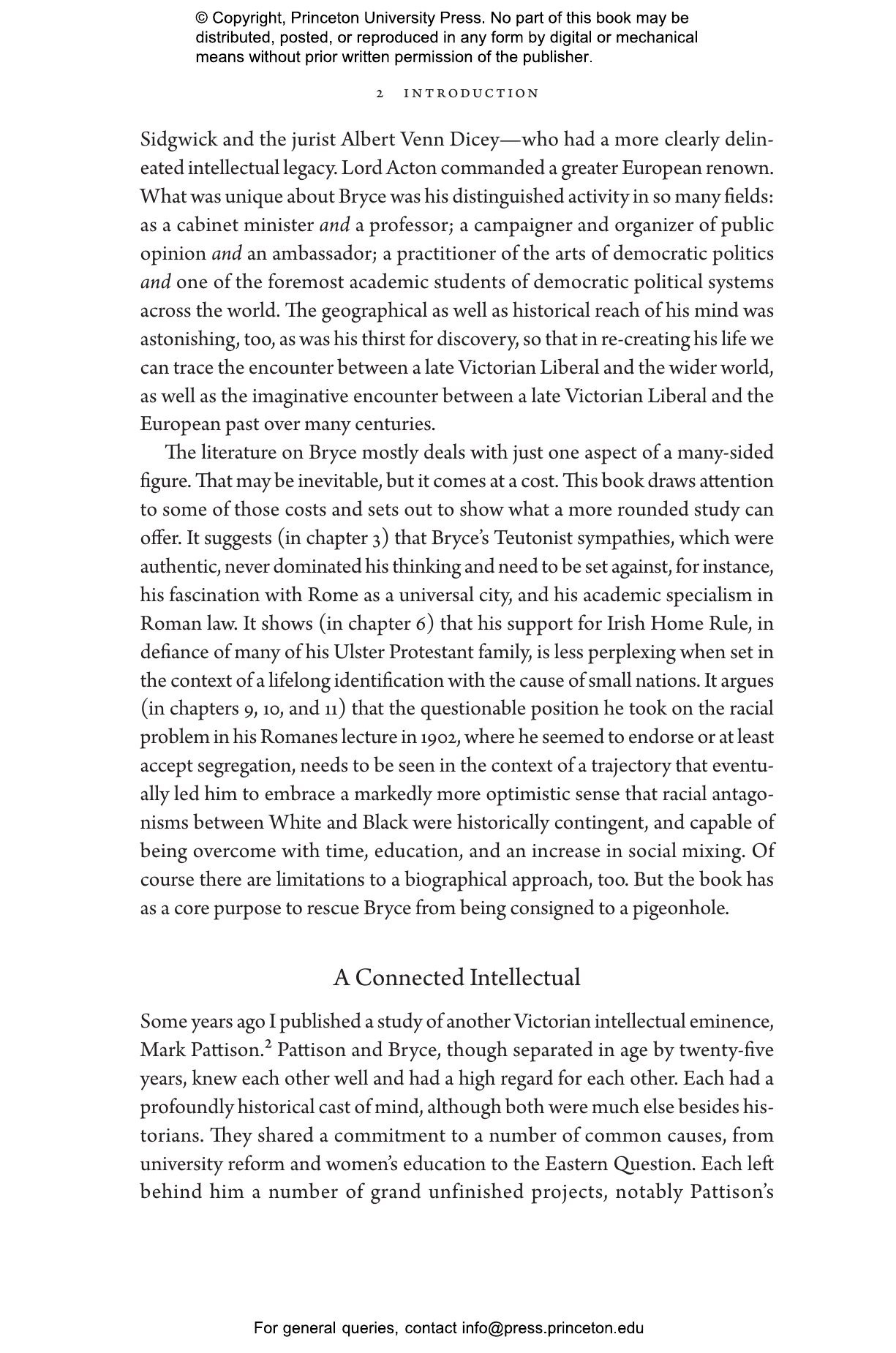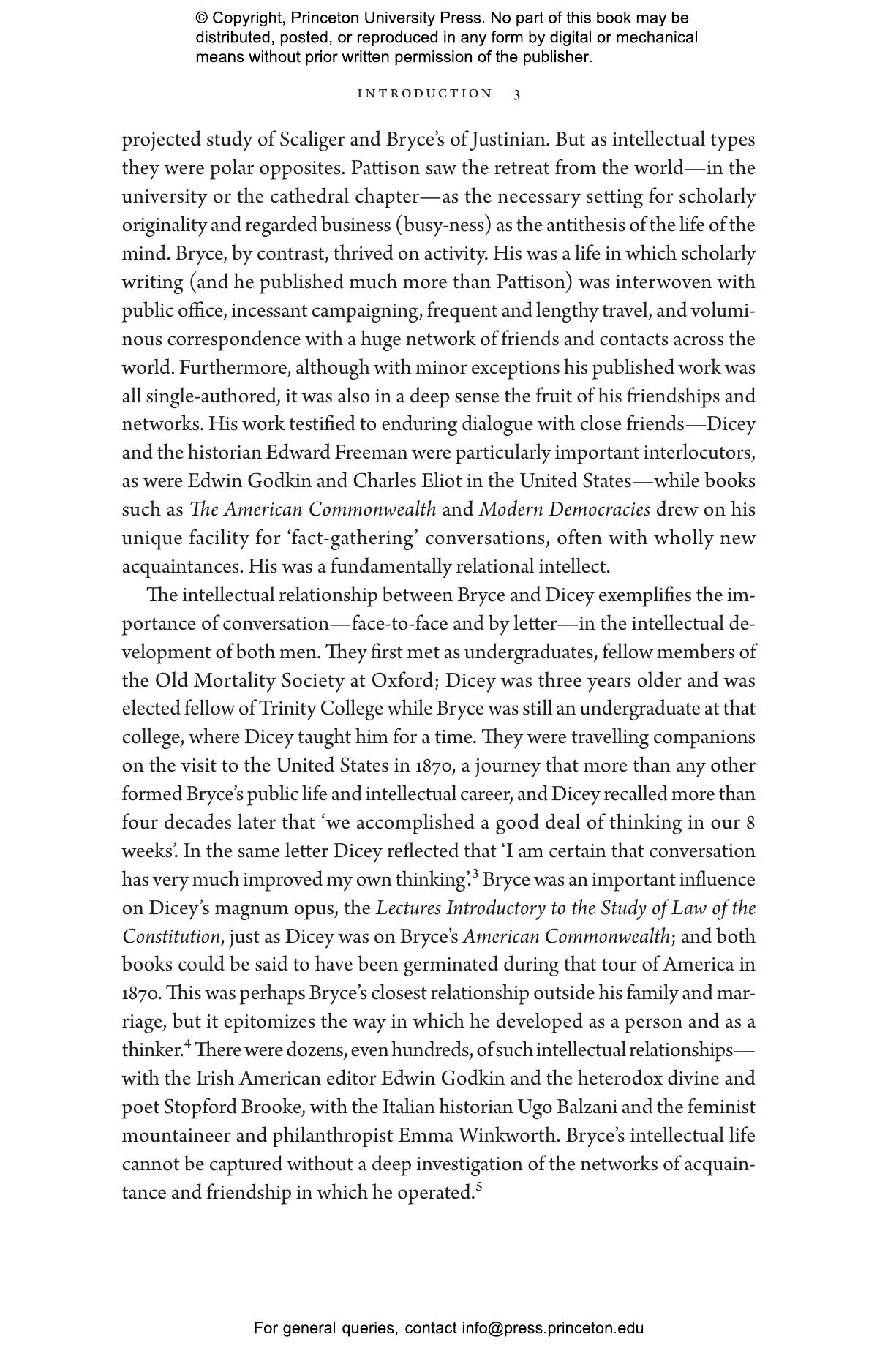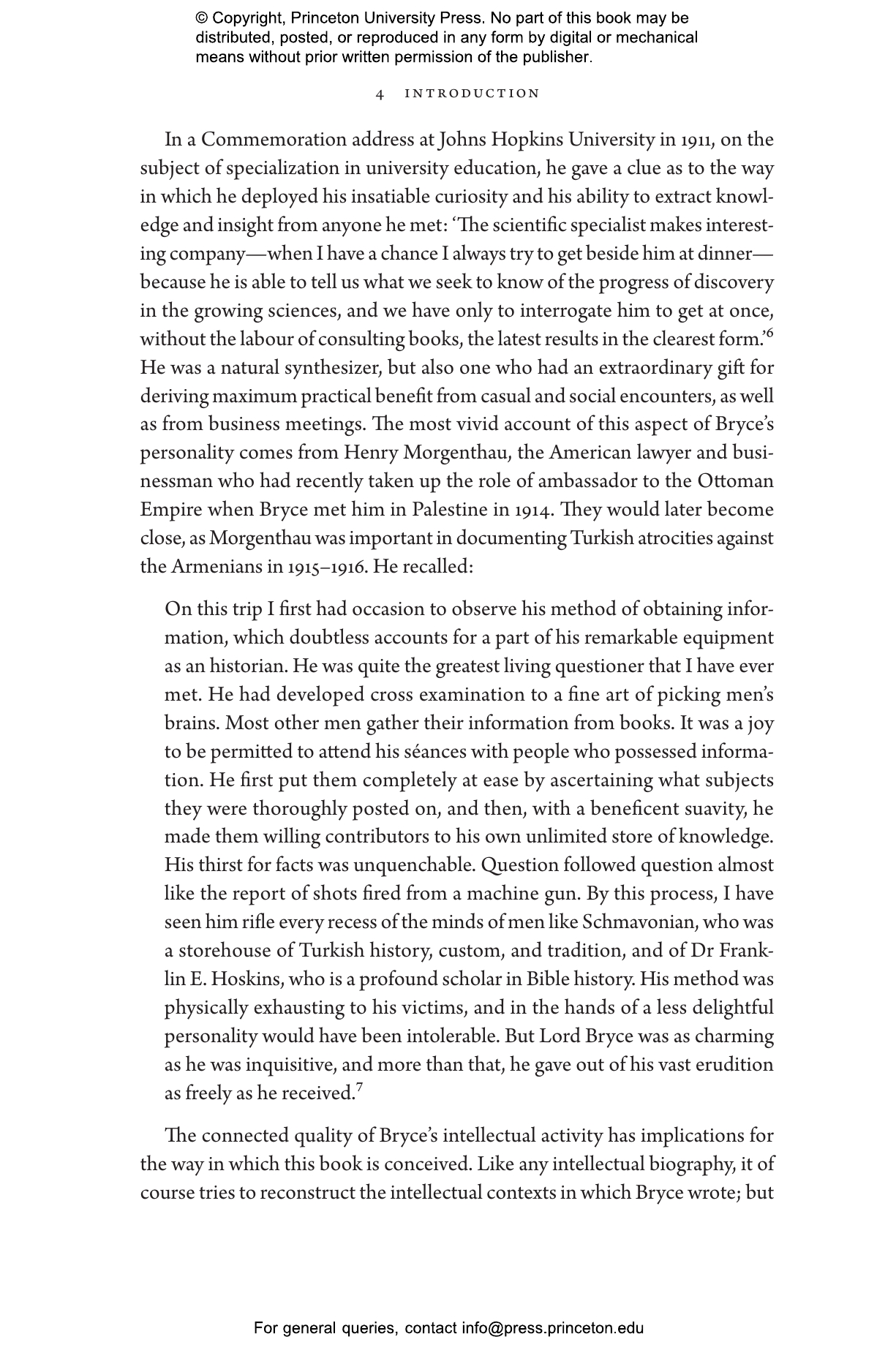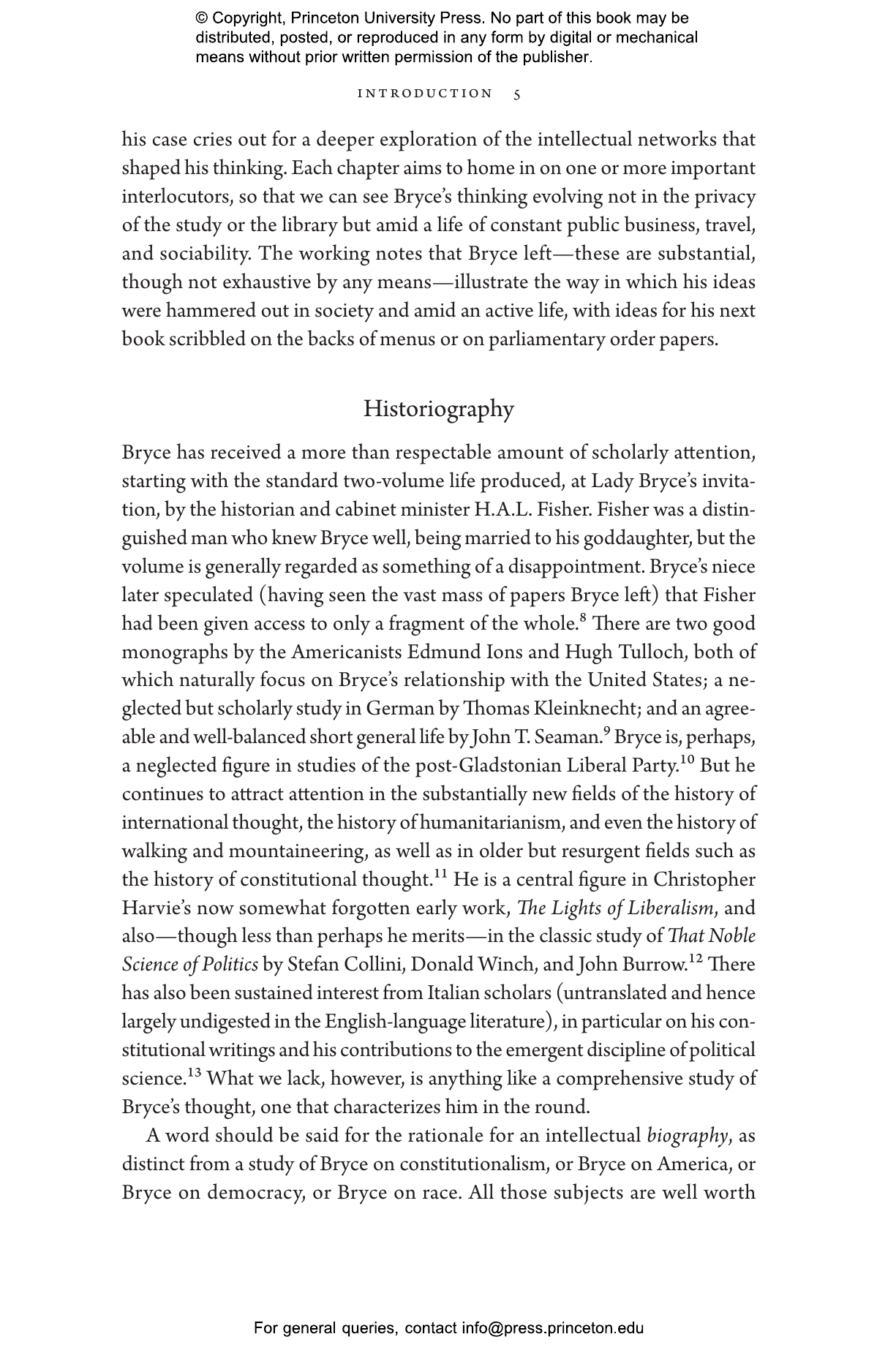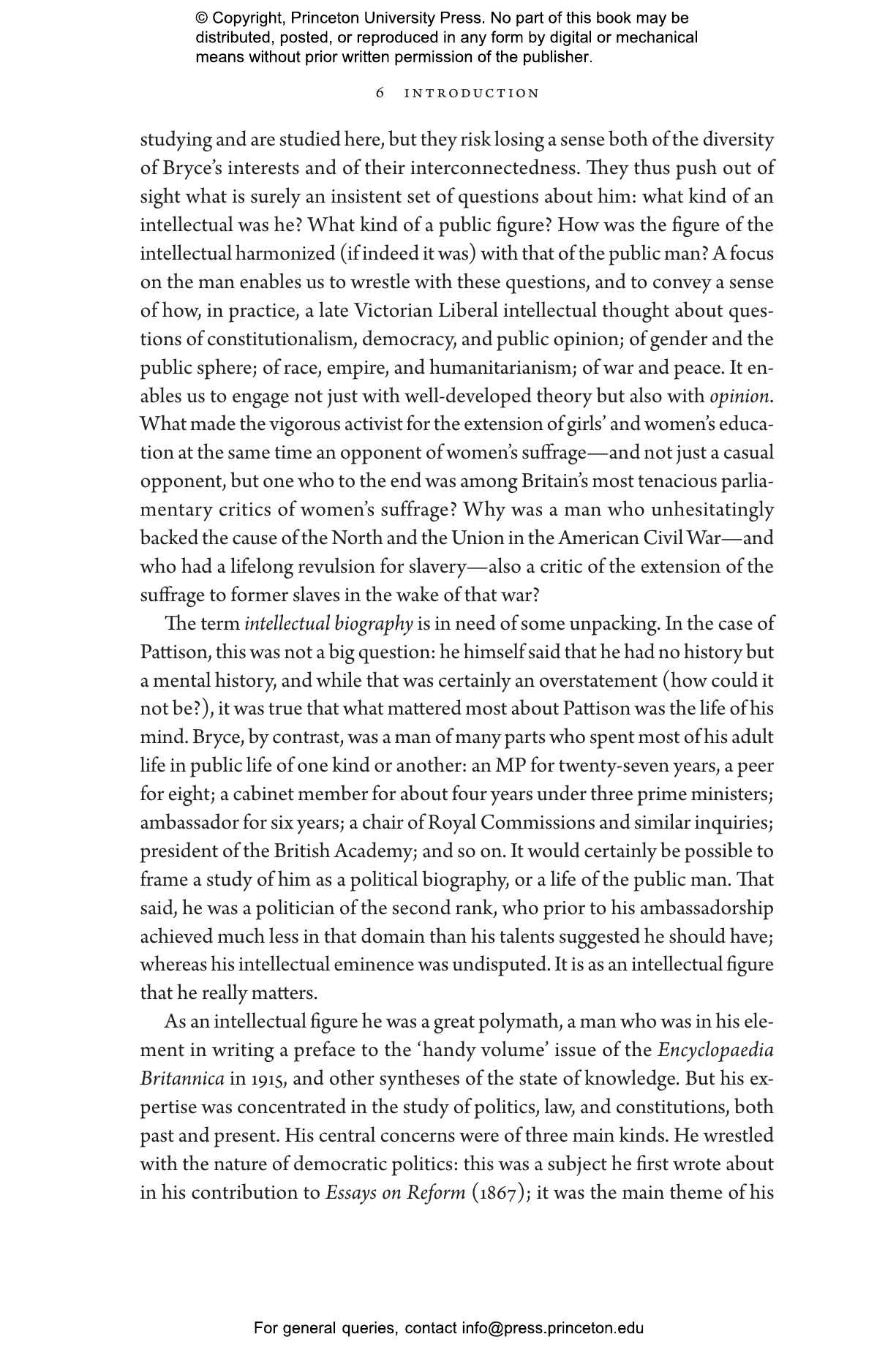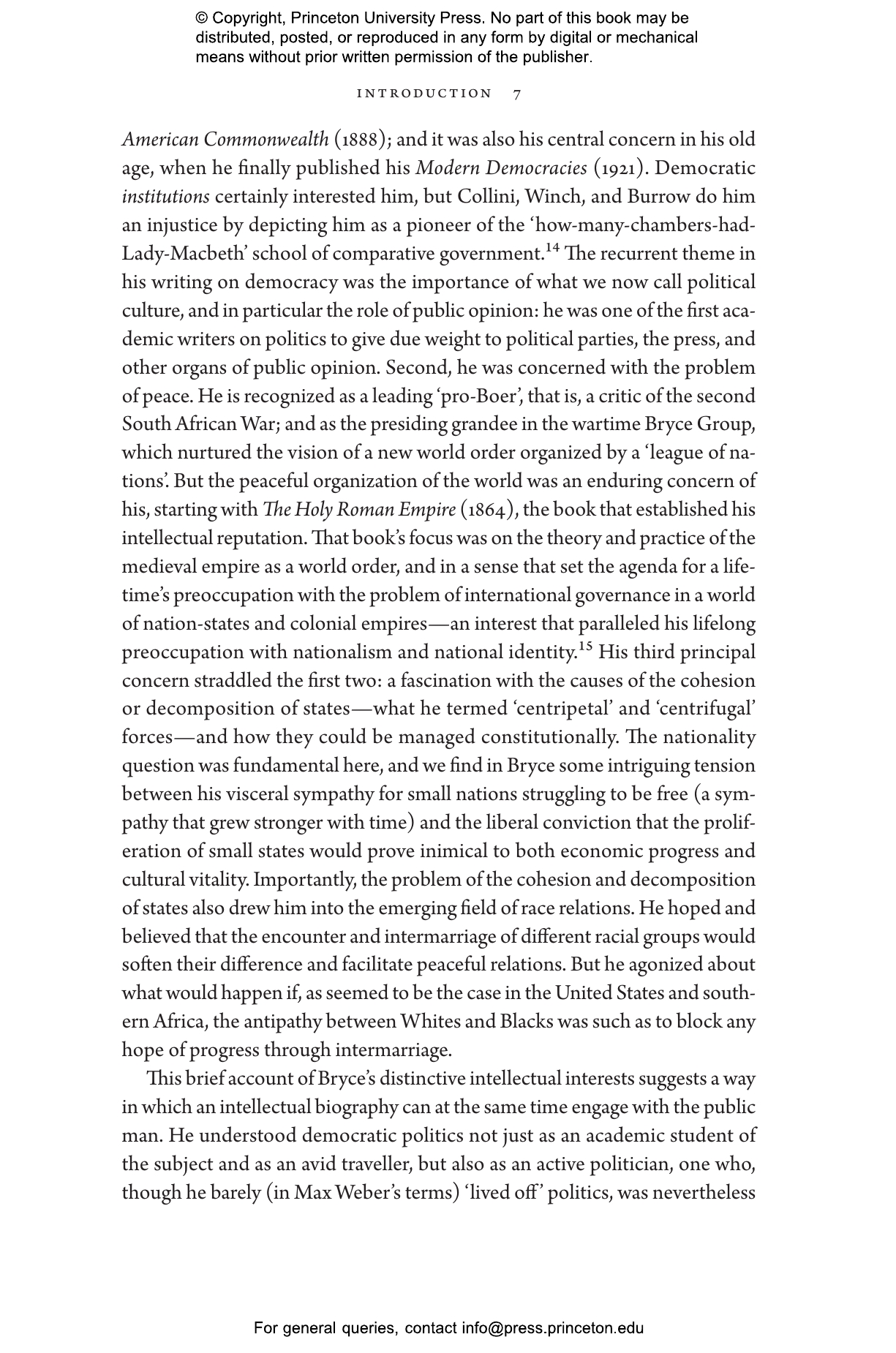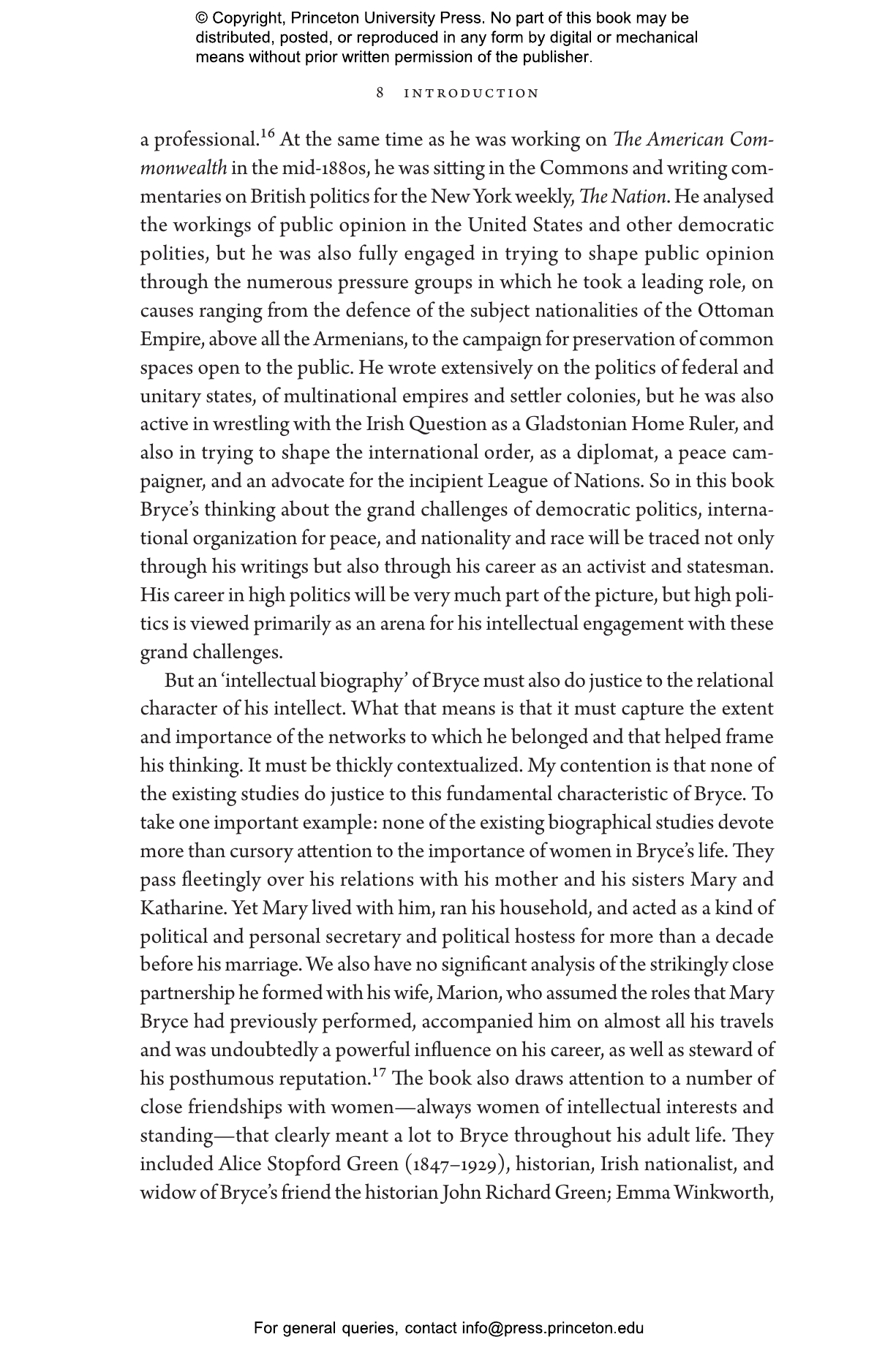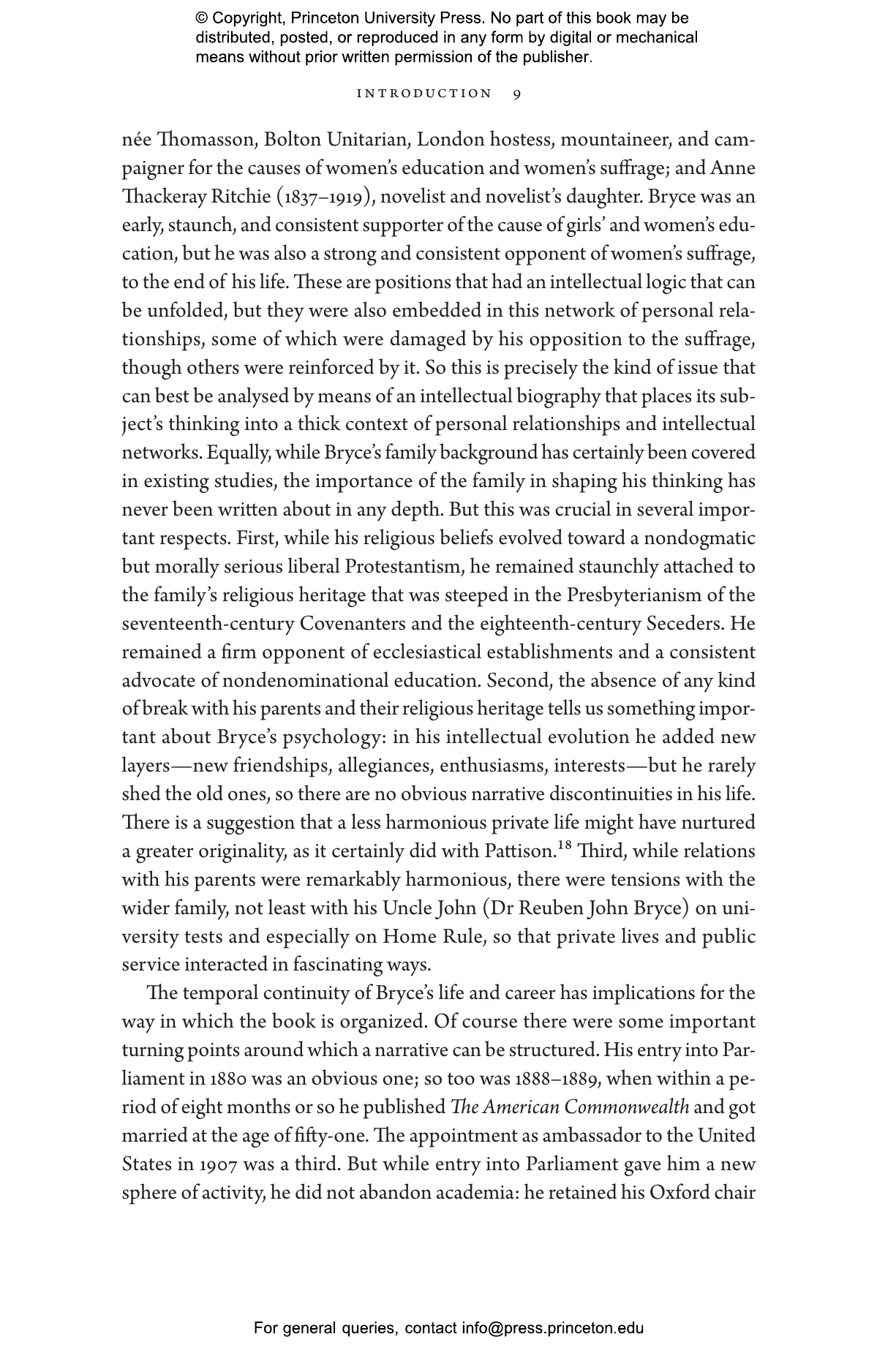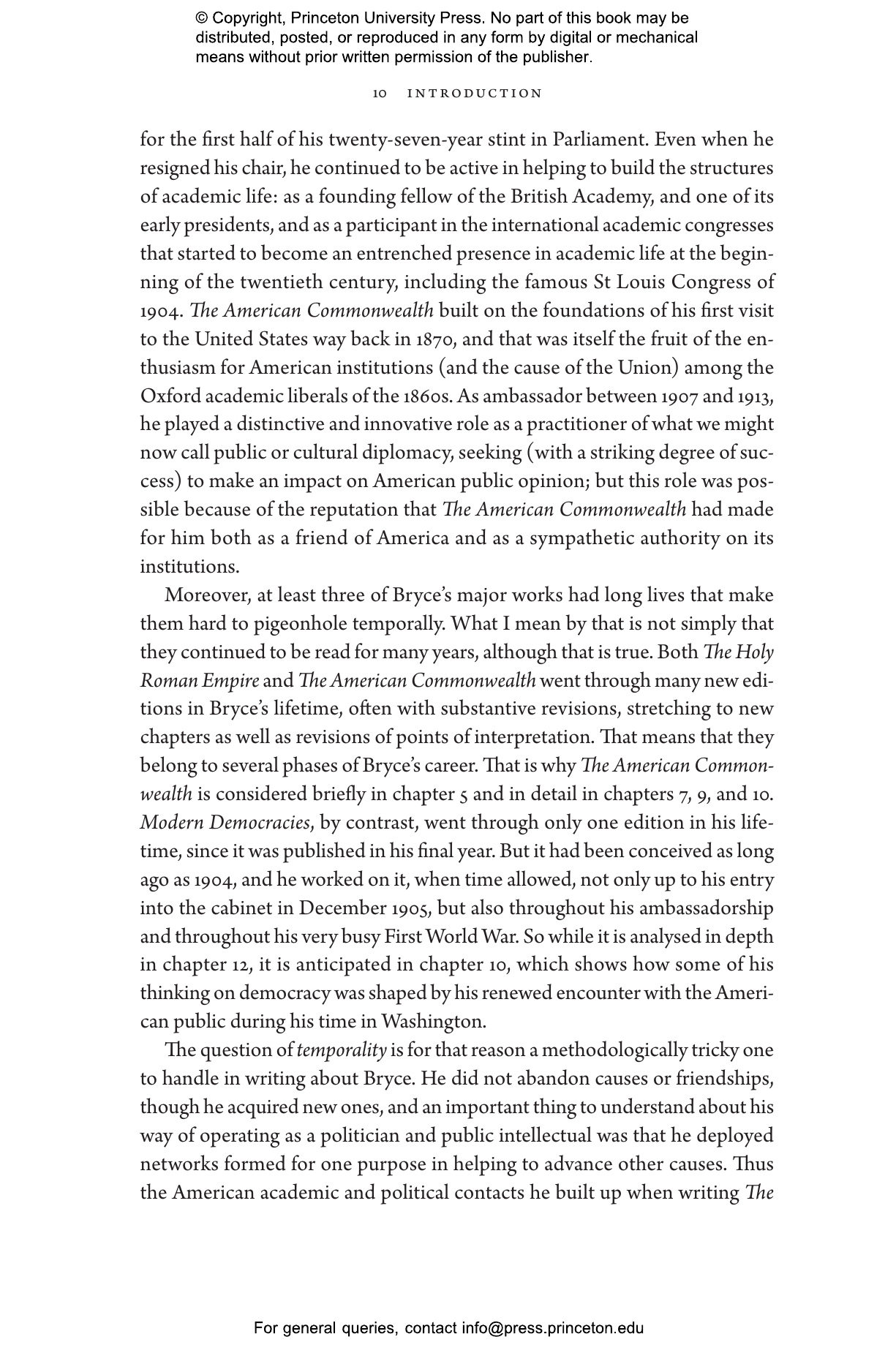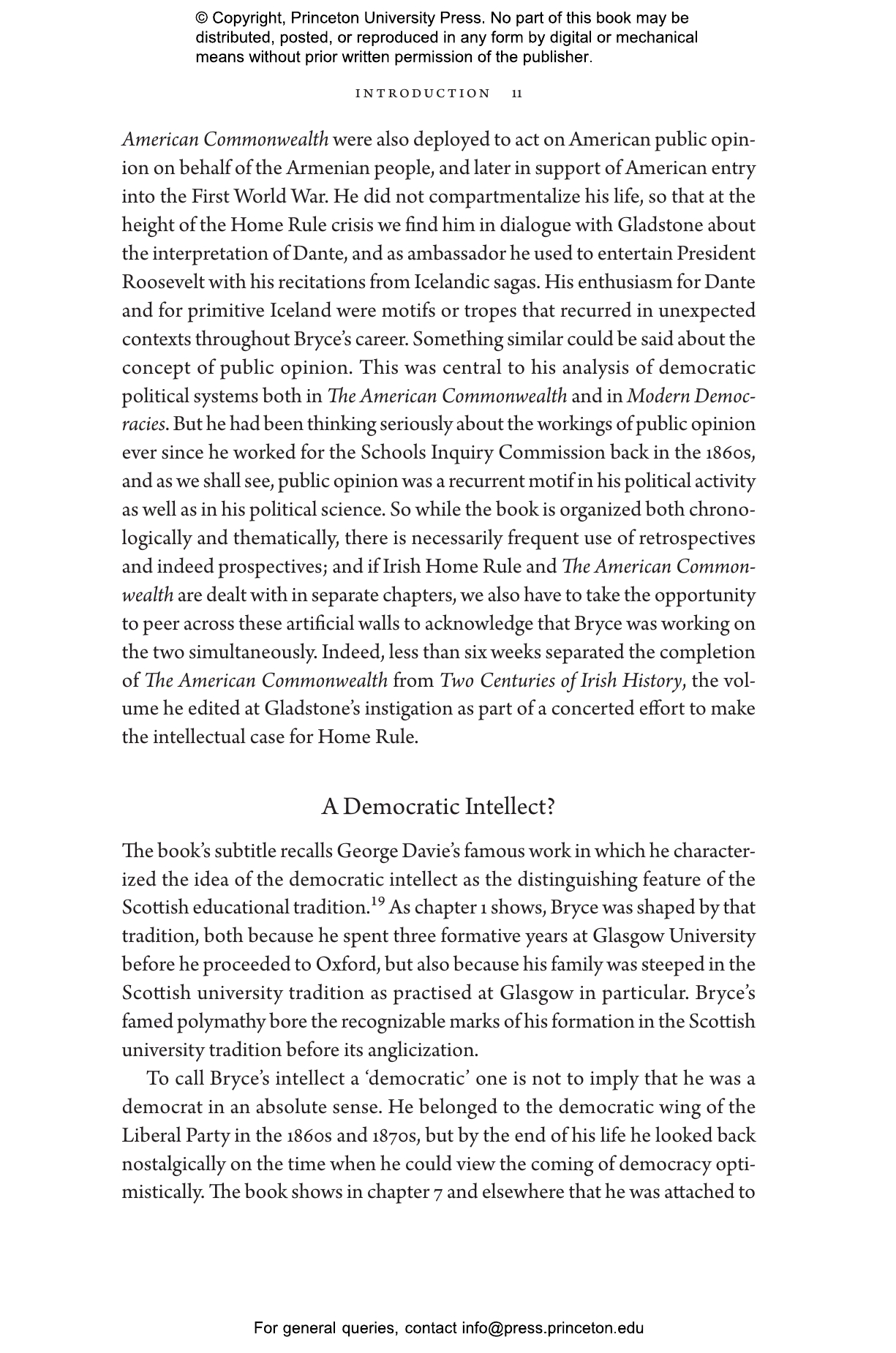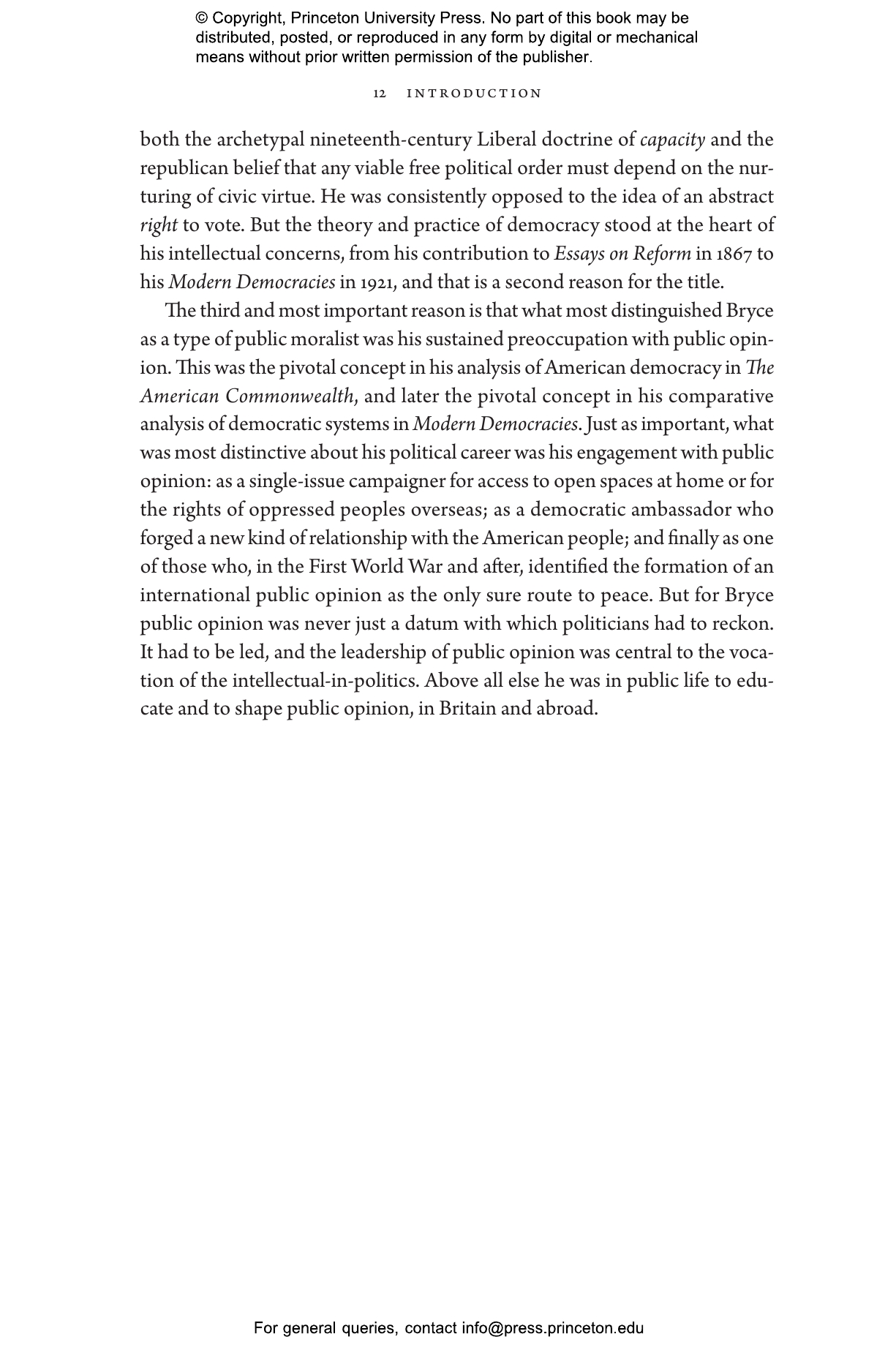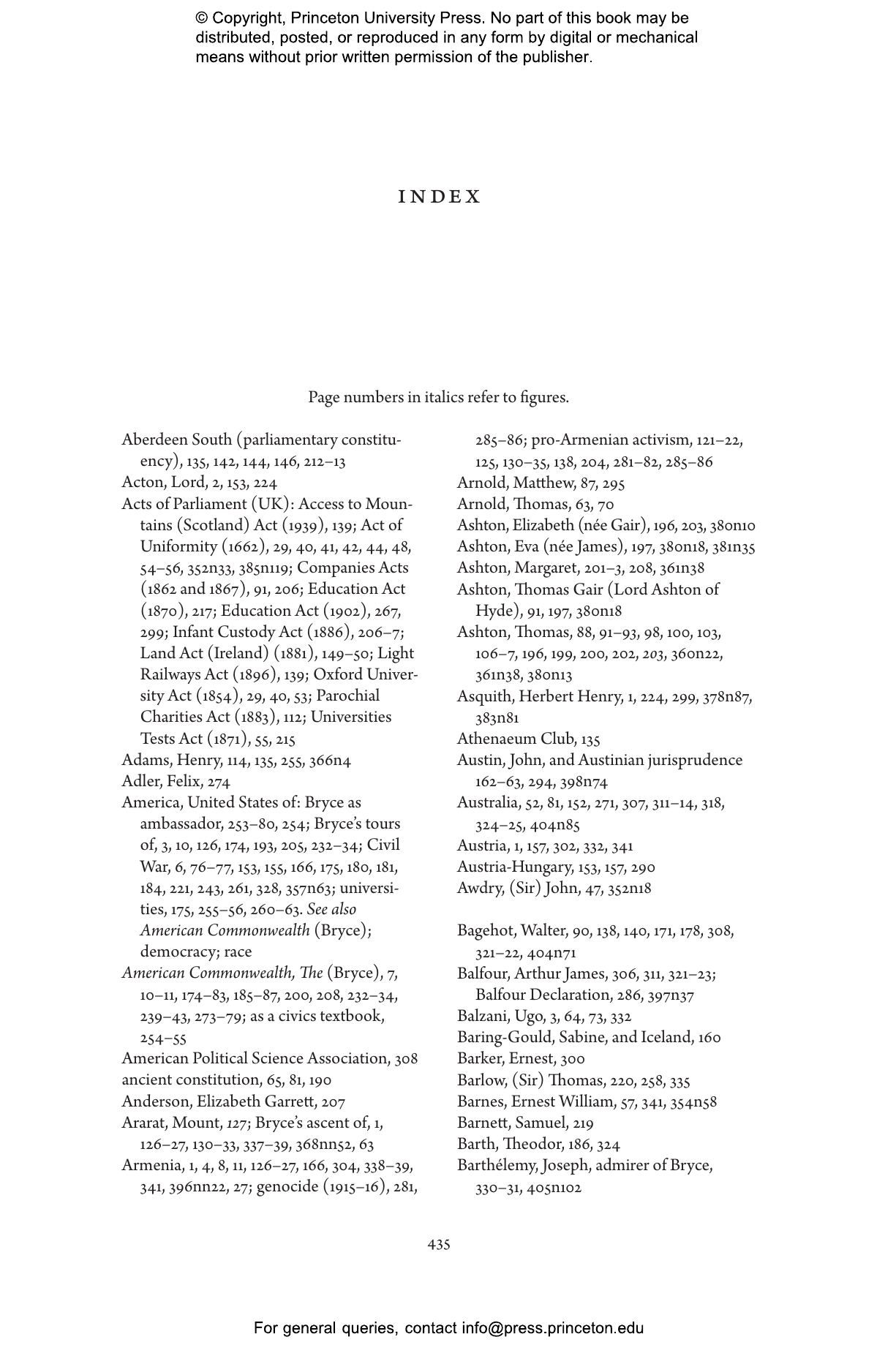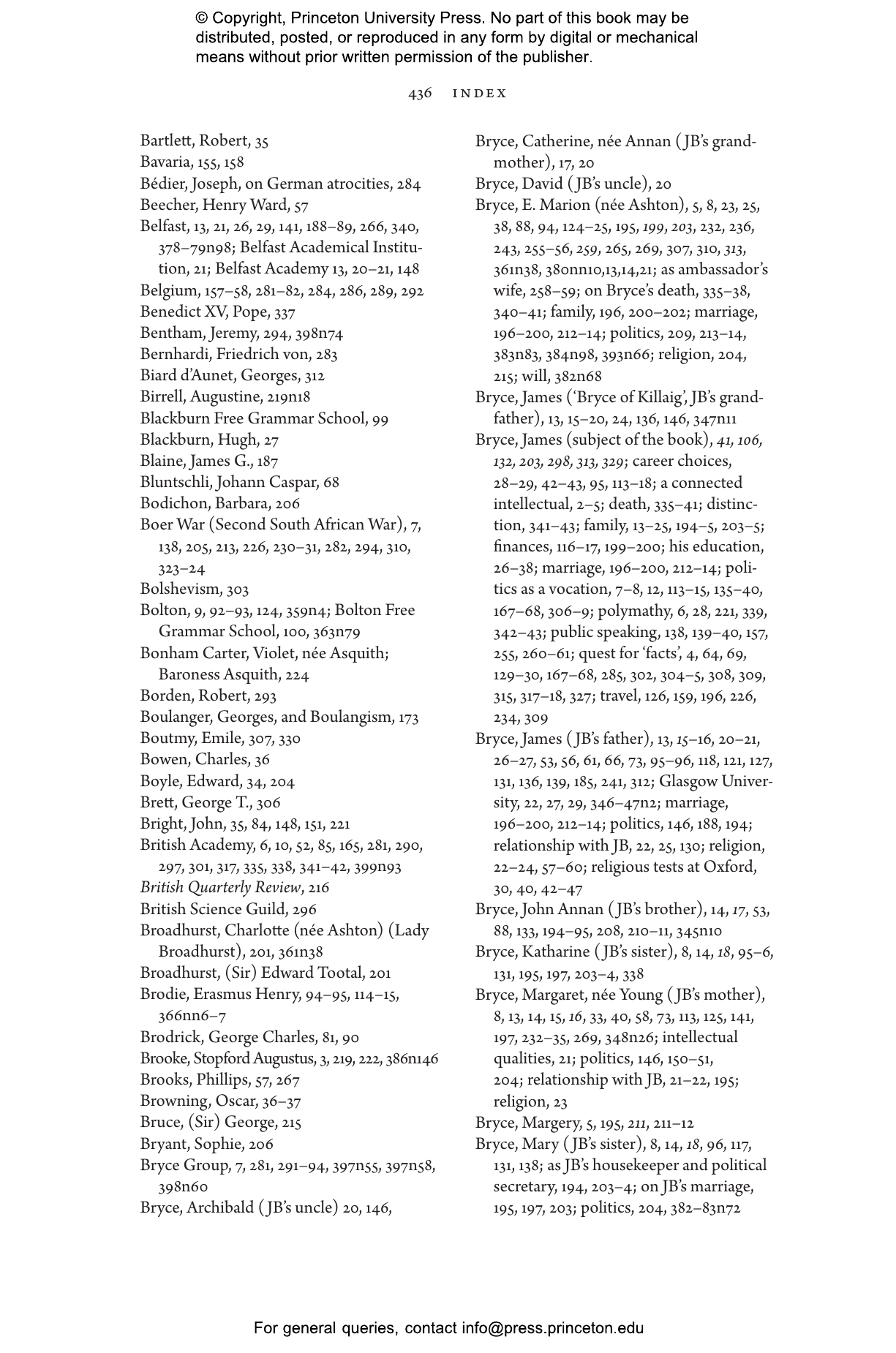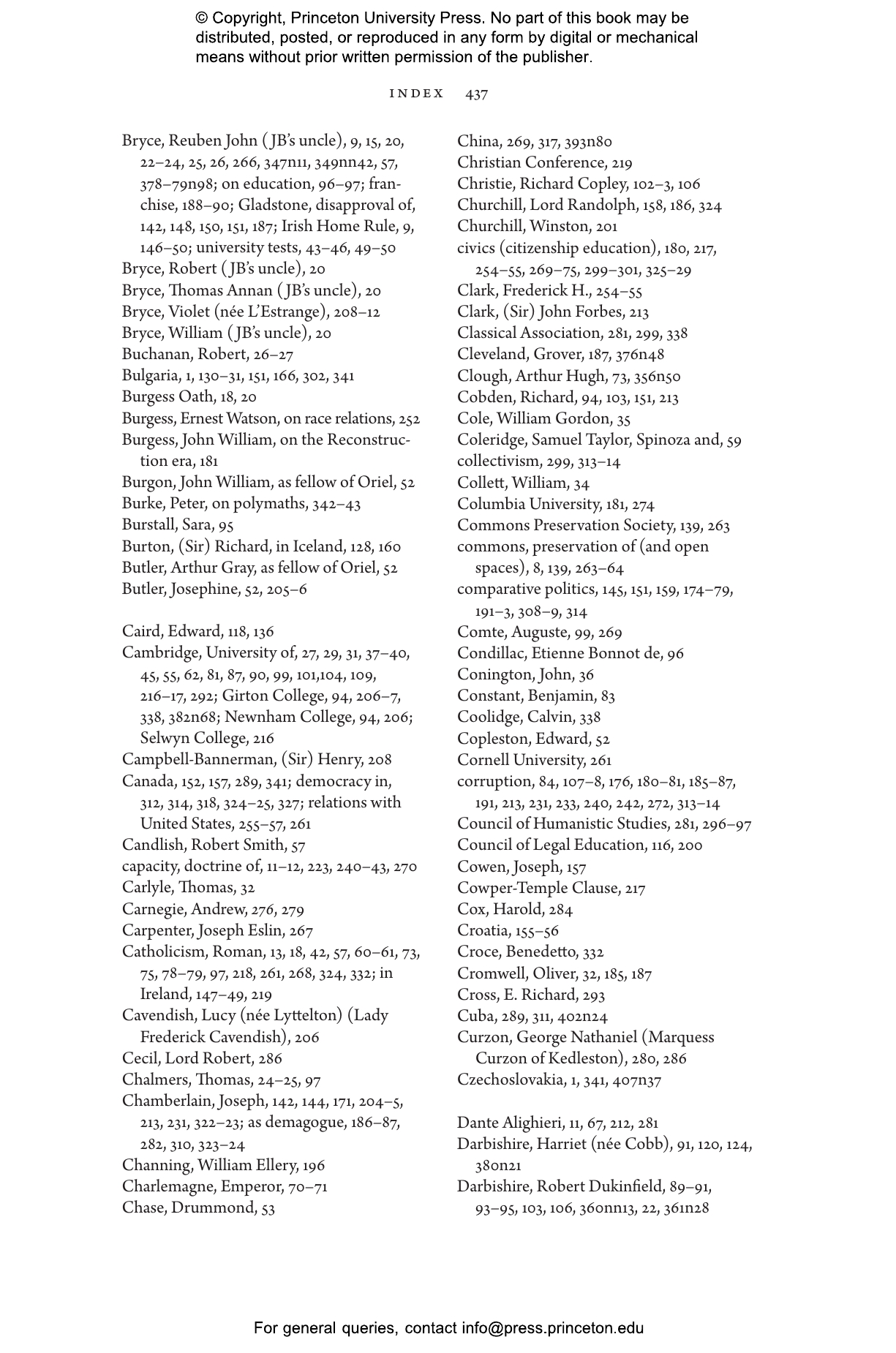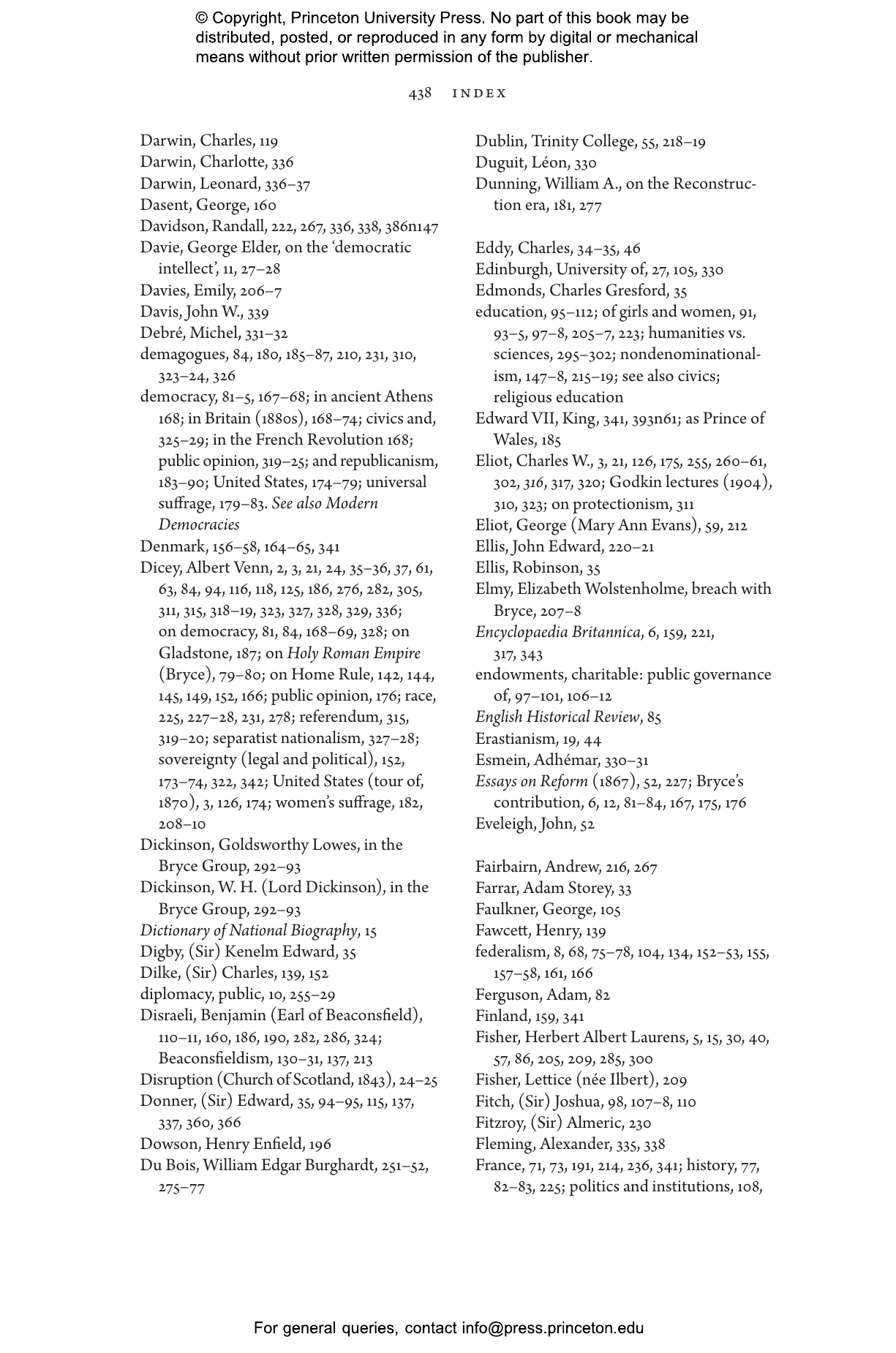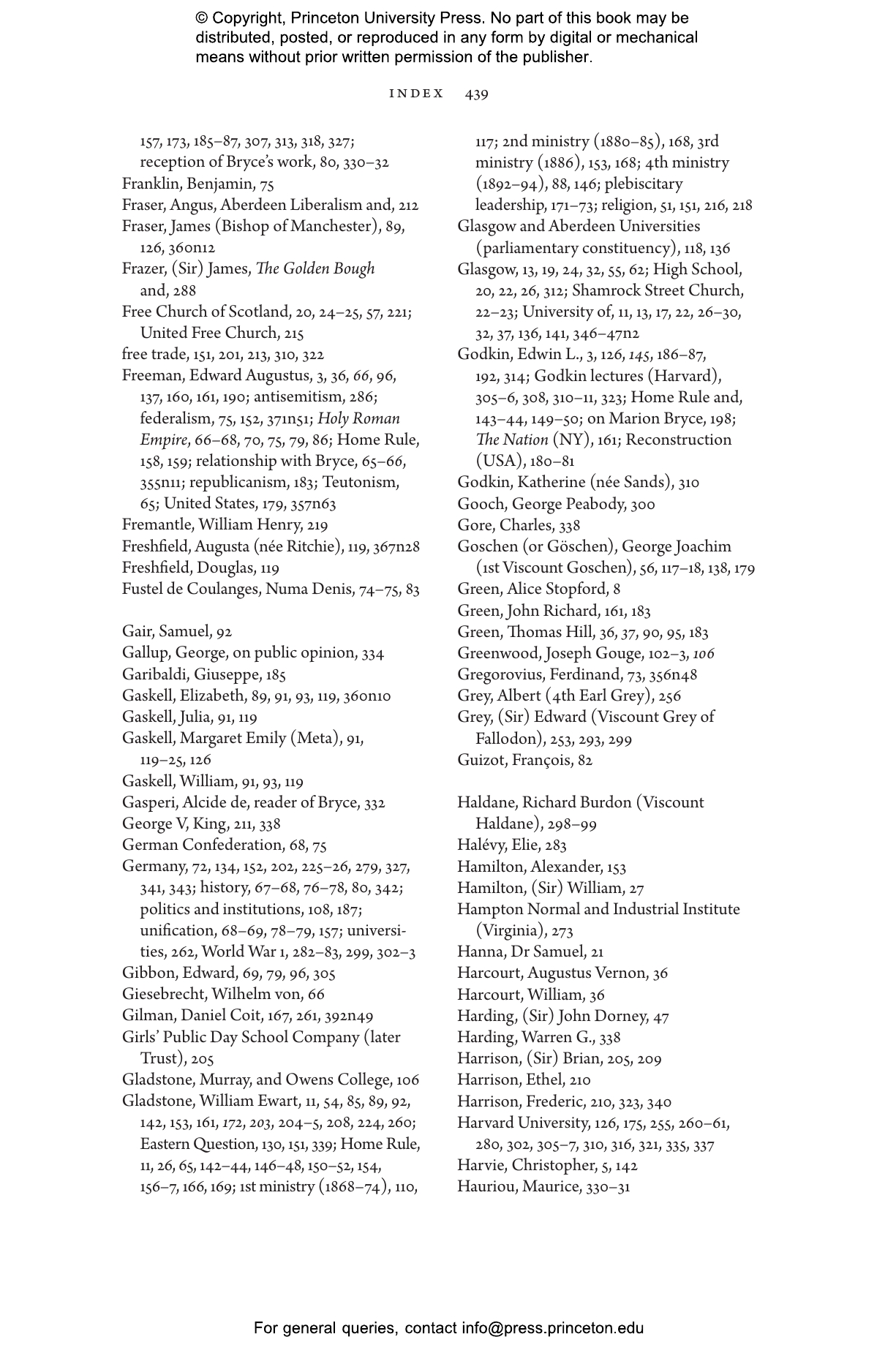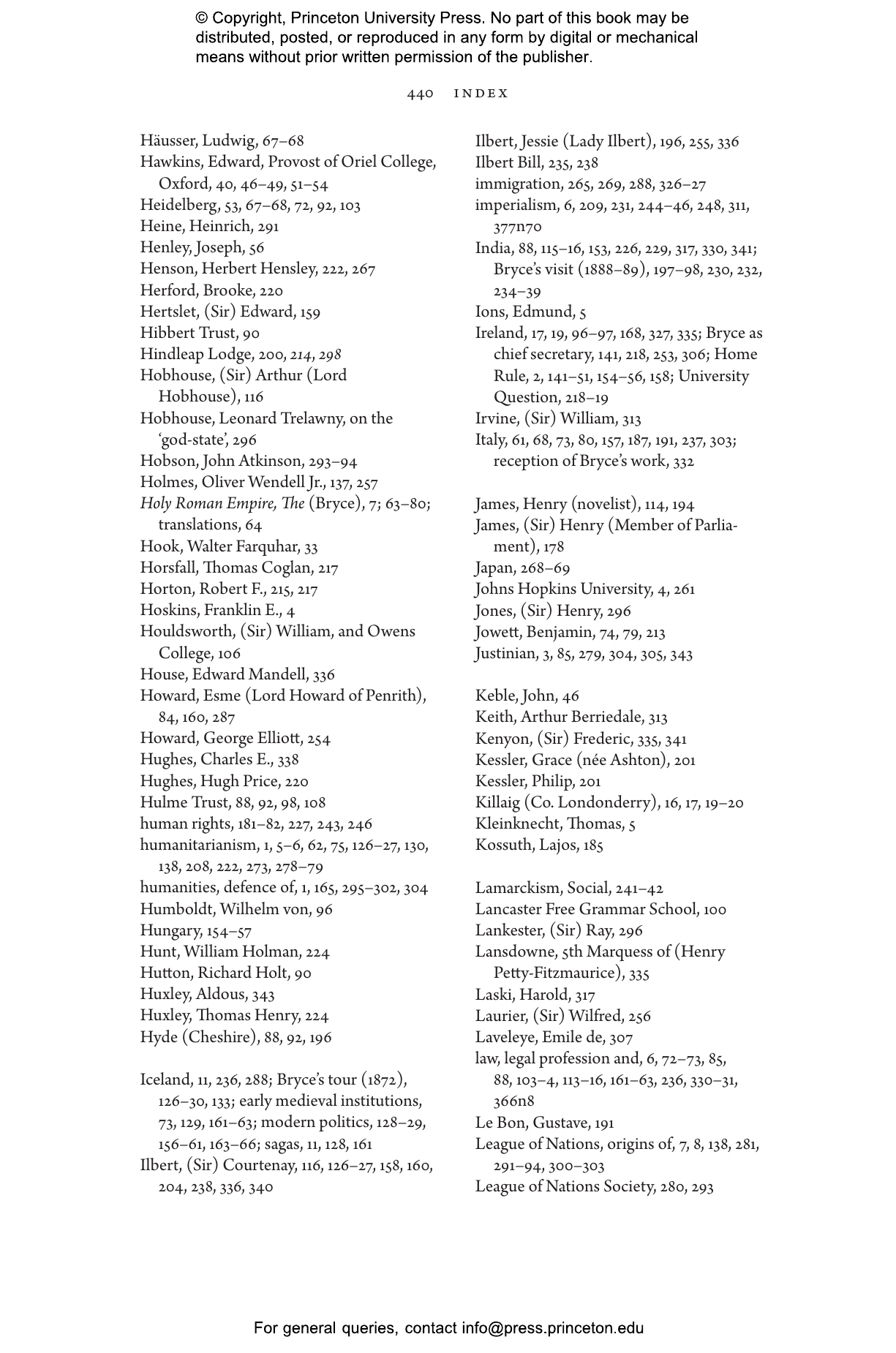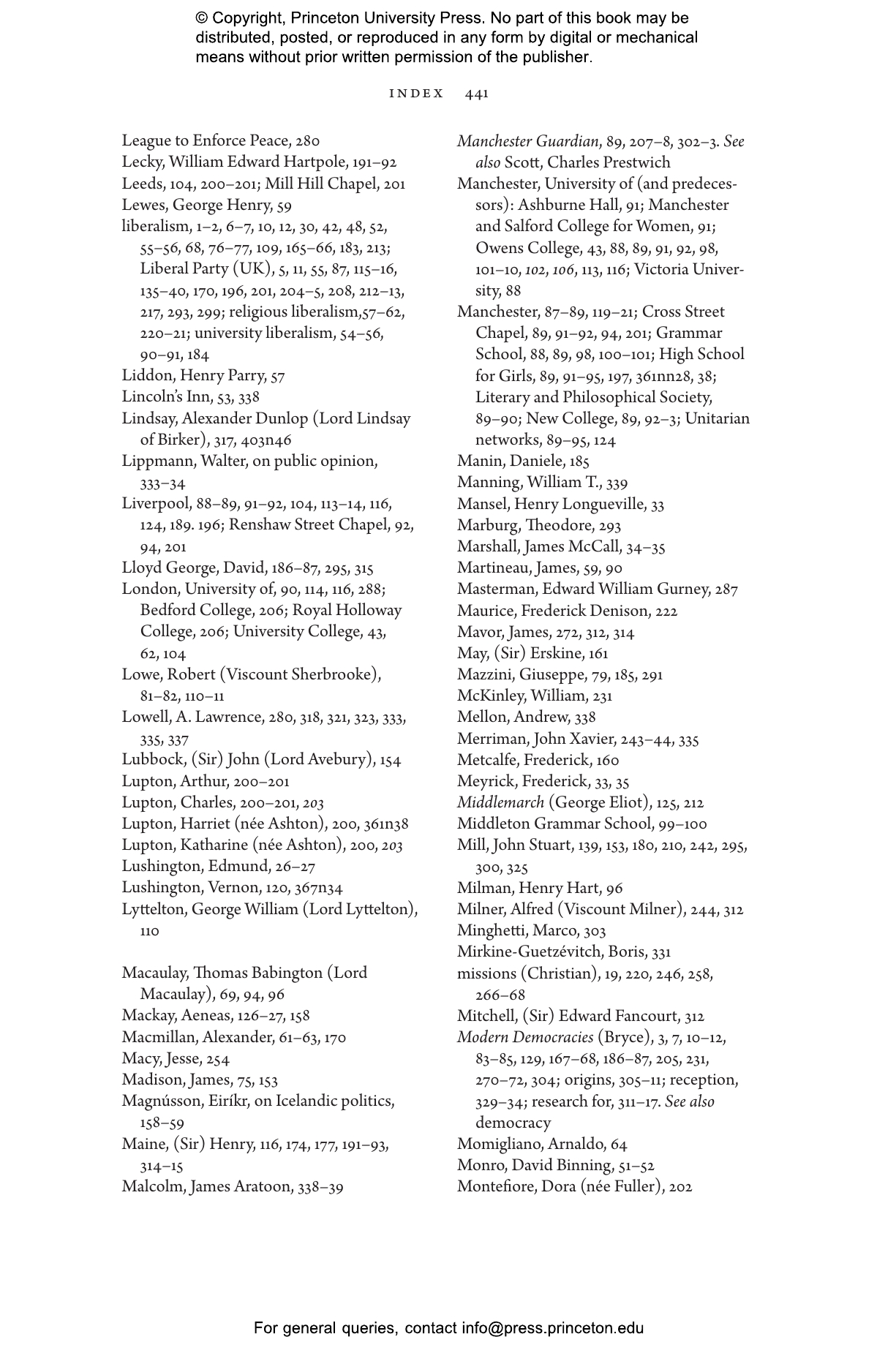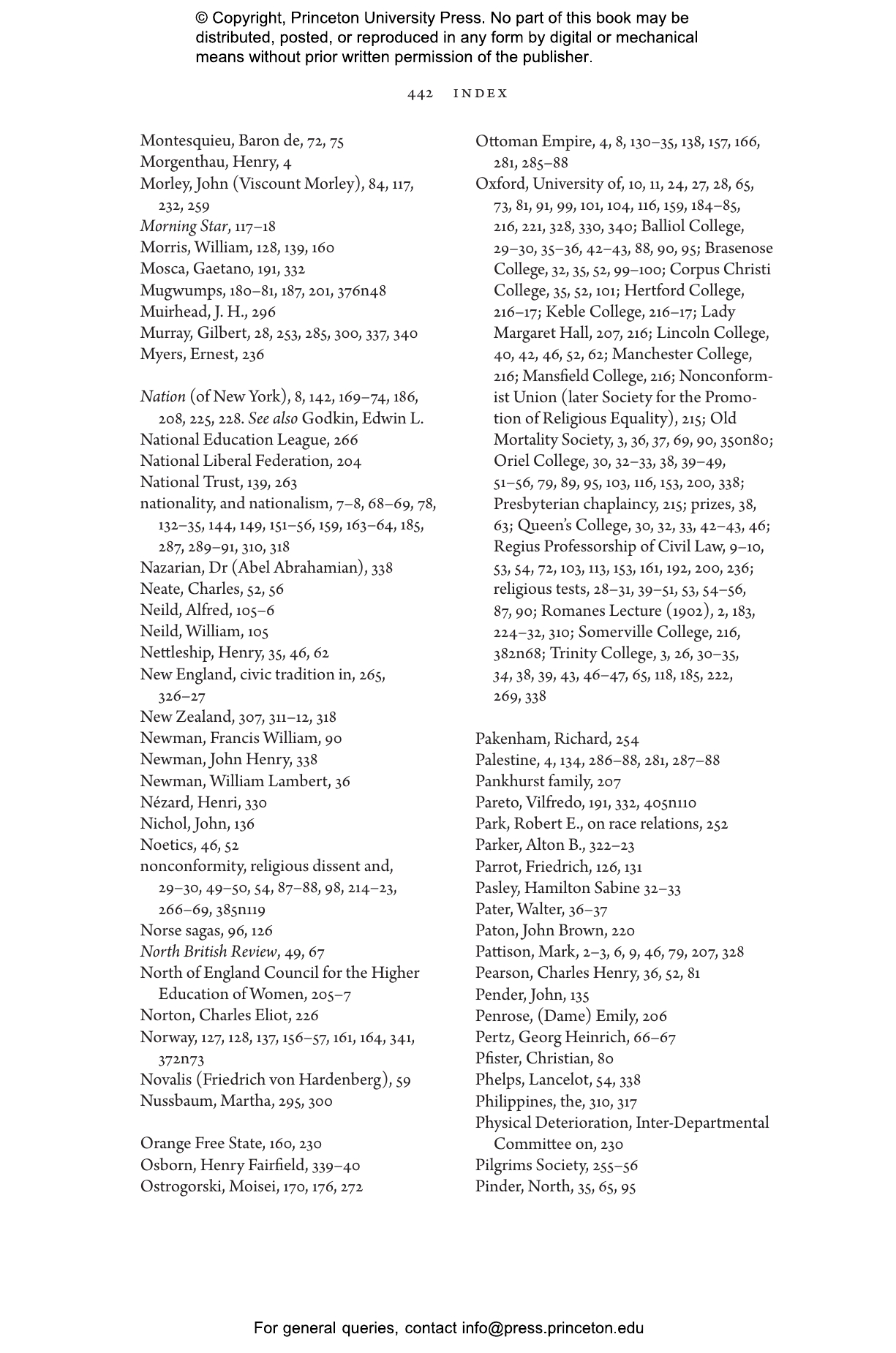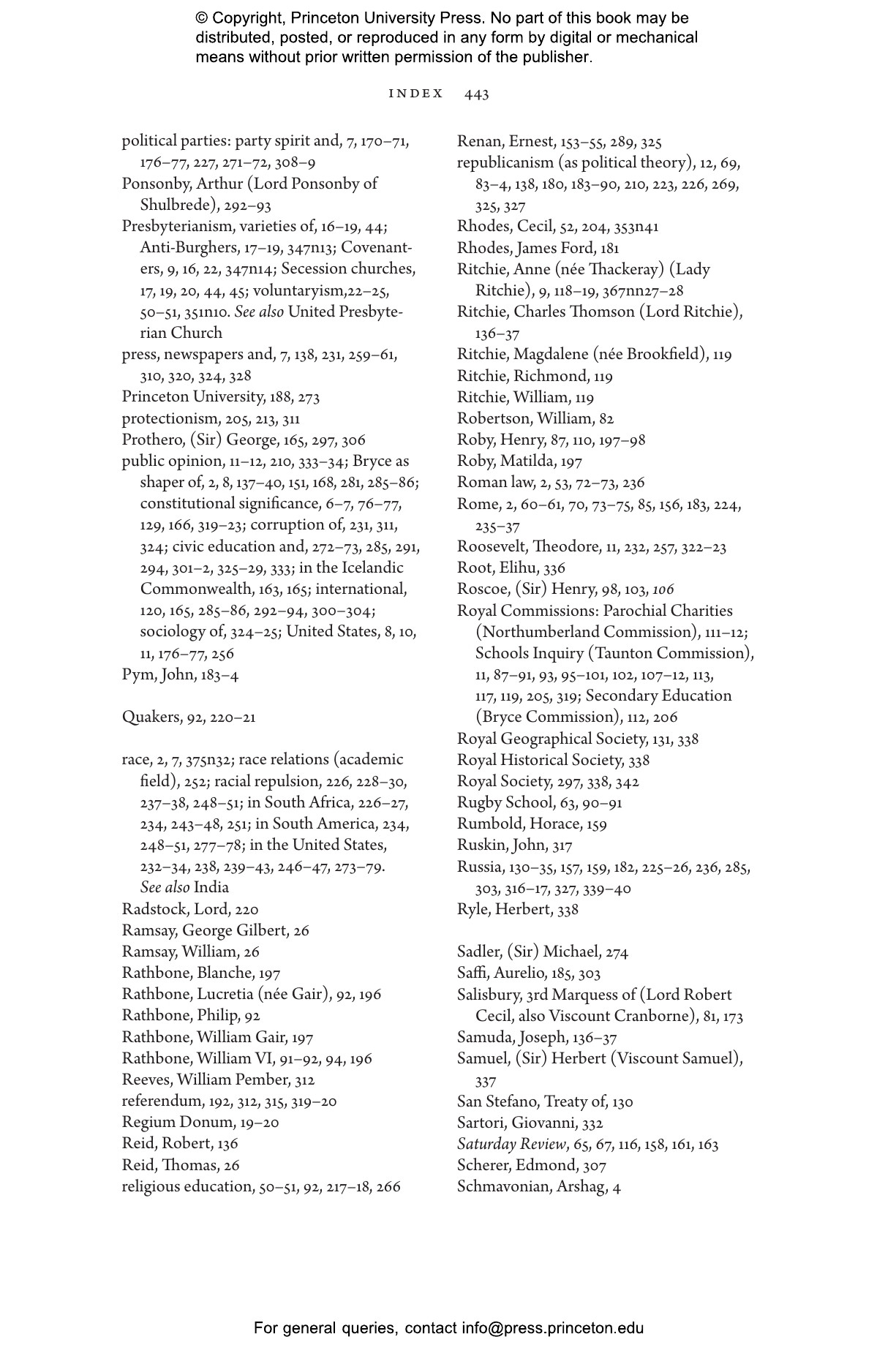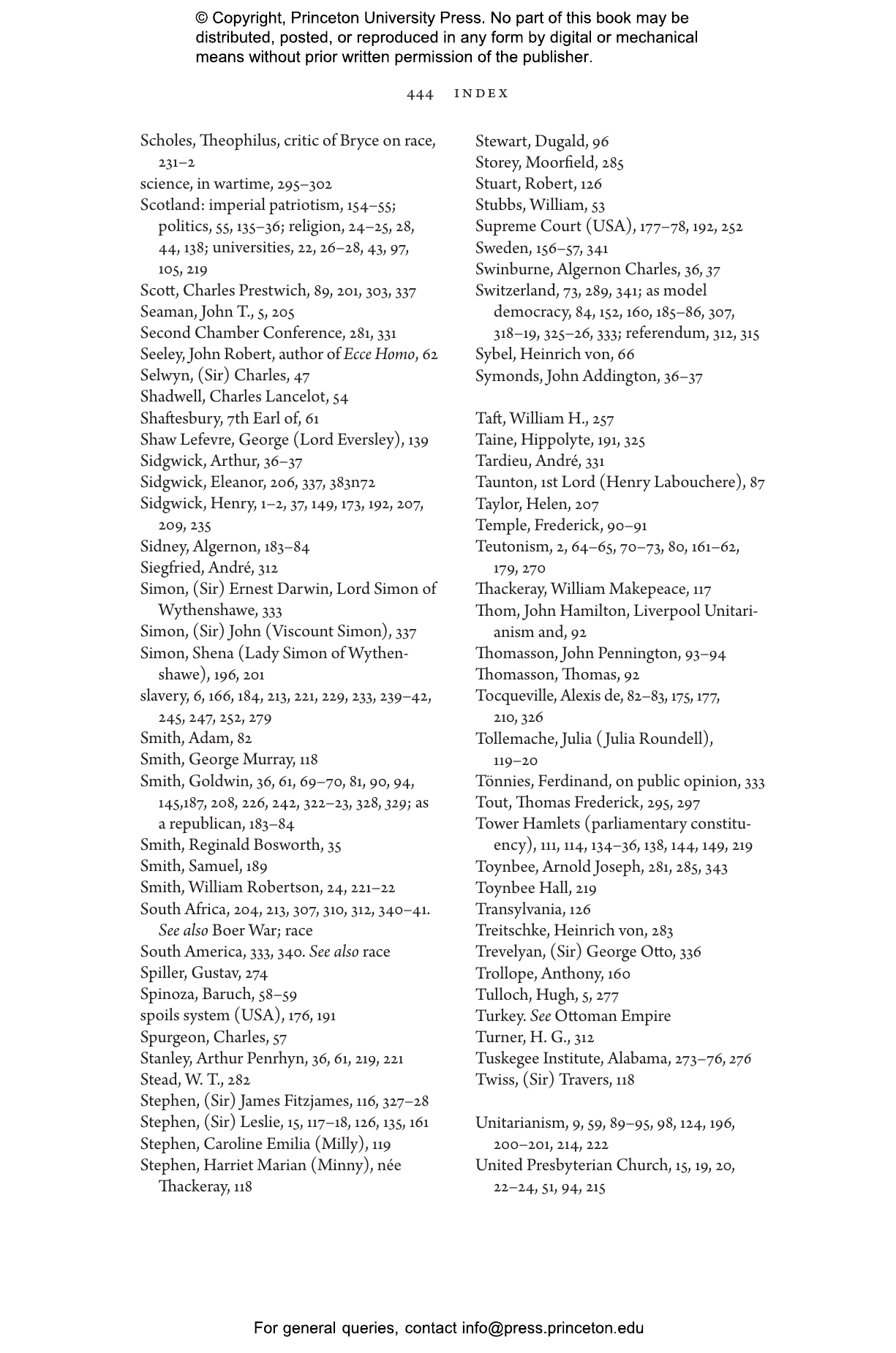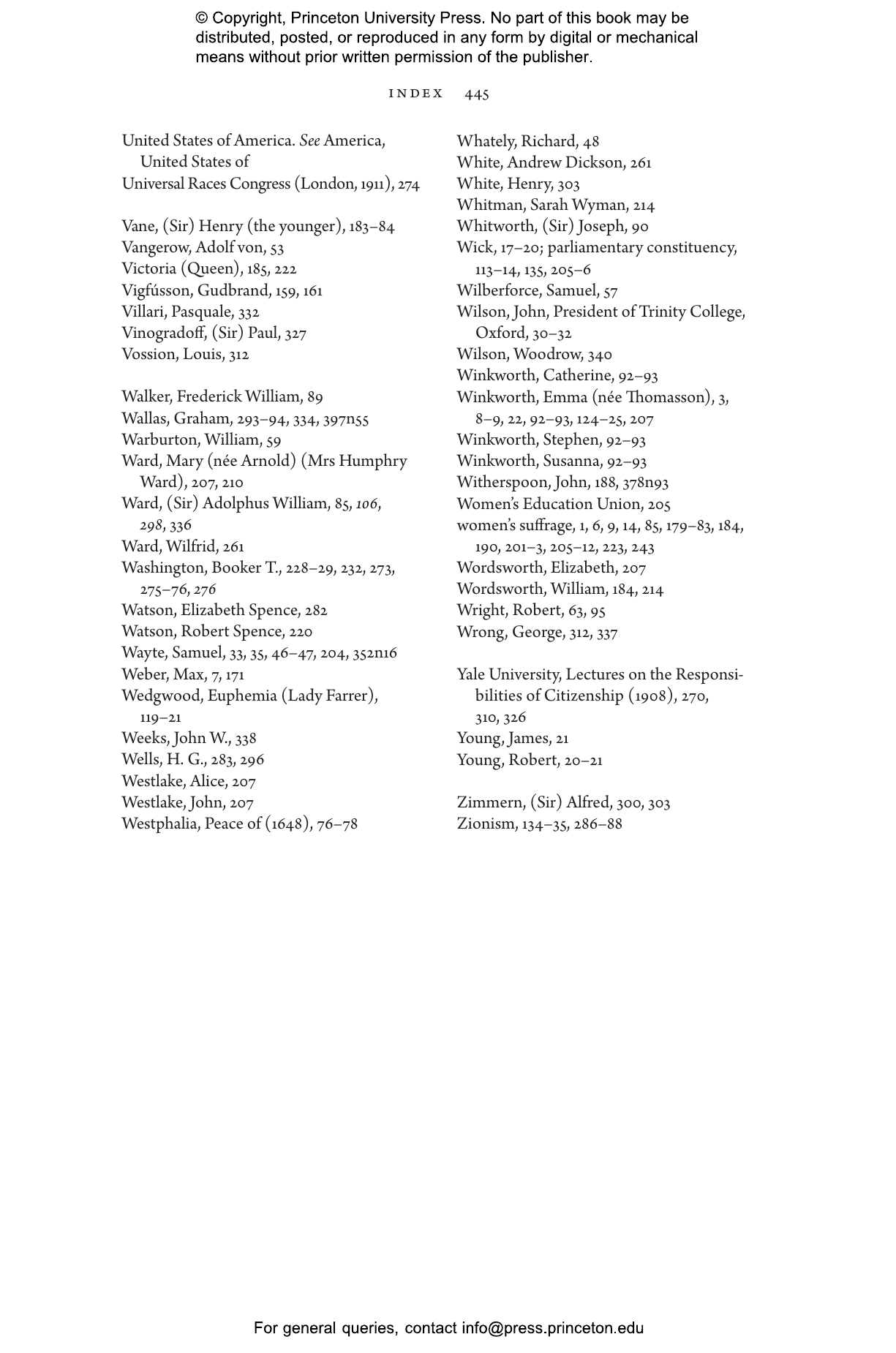James Bryce (1838–1922) was a leading figure in Britain’s Liberal Party and a distinguished historian, a versatile scholar-politician who moved seamlessly between academia and politics. He was, among many other things, a cabinet minister and a popular ambassador, an expert on American politics and on Roman law, an advocate for the Armenian people and an architect of the League of Nations, a world traveller and a climber of Mount Ararat. In Liberal Worlds, Stuart Jones offers an intellectual biography of Bryce, tracing a Scots-Ulster Presbyterian’s assimilation to the increasingly multiconfessional Victorian state, and a late Victorian Liberal’s encounter with the wider world. Jones shows how a polymathic intelligence grappled with a dizzyingly wide range of concerns and issues, including the challenges of democracy and race relations, the rise of modern universities and the reconstruction of the international order after World War I.
In mapping the evolution of Bryce’s thought, Liberal Worlds illuminates the international intellectual networks and the many places across the globe that shaped his thinking. Jones considers, for example, why a man who had a lifelong revulsion against slavery seemed to accept racial segregation in the American South; how a vigorous activist for girls’ and women’s education became a tenacious parliamentary critic of women’s suffrage; and why, over the objections of his Ulster Presbyterian family, he backed Irish home rule. Above all, Jones rescues Bryce—immensely influential in his time, now little remembered—from being consigned to a historical pigeonhole, restoring him to the centre of late nineteenth- and early twentieth-century debates over the nature of democratic politics.
Stuart Jones is professor of intellectual history at the University of Manchester. He is the author of The French State in Question: Public Law and Political Argument in the Third Republic, Victorian Political Thought, and Intellect and Character in Victorian England: Mark Pattison and the Invention of the Don.
14094
“James Bryce was much more than an individual, and this book is much more than his biography (although it is that as well). He incarnated a whole era. And through the ideal prism of following the multiple ways in which he epitomised as well as shaped it, this book is a brilliantly original history of that era.”—Georgios Varouxakis, author of The West: The History of an Idea
“This work is a triumph, and the author has pulled off the incredibly tricky task of constructing on the basis of a dauntingly formidable body of scholarship a breezy and accessible read. This is the perfect marriage of subject and intellectual biographer.”—Colin Kidd, University of St Andrews
“Stuart Jones has written a brilliant book on a remarkable figure. Wide-ranging, lucid, and thoroughly convincing, it offers the most comprehensive account yet of Bryce’s vast body of work. Liberal Worlds is a very impressive piece of scholarship, by one of the leading intellectual historians of modern Britain.”—Duncan Bell, University of Cambridge
“Stuart Jones is one of our greatest and most versatile historians. It is hard to think of anyone else who could have written such a study about Bryce, a figure whose importance stretches in so many different directions. Anyone who wants to get beyond abstractions, and think concretely about the intellectual and political world out of which modern liberal democracy and its dilemmas arose, will profit immensely from this marvellous book.”—Gregory Conti, 91ÌÒÉ« University
“In Liberal Worlds, Stuart Jones brilliantly revives James Bryce’s legacy, offering a richly contextualised portrait of a man whose hugely influential ideas on constitutionalism, democracy, public opinion and empire were fundamentally connected to his social and political relationships. In the process it not only establishes Bryce’s place in intellectual history but also deepens our understanding of the political and moral challenges that shaped British liberalism and defined his age. This is intellectual biography at its best—charting not just ideas, but the relationships and public commitments that gave them life.”—Tamson Pietsch, author of The Floating University: Experience, Empire and the Politics of Knowledge


